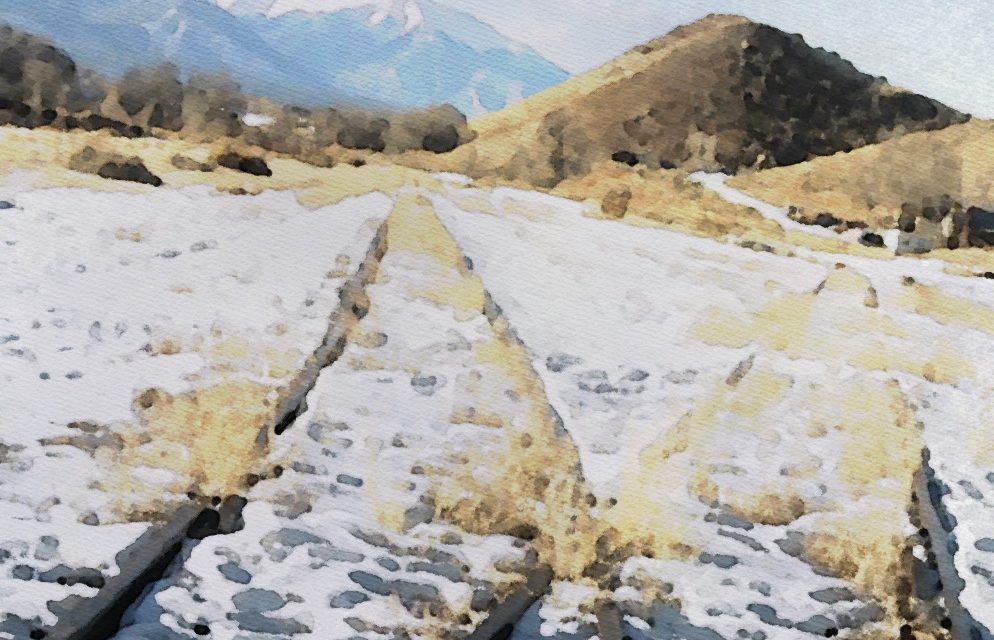Calling for Supplemental Review of Project, Colorado Lawmakers Call East Palestine Disaster a “Terrible Reminder” of Potential Damage from Transporting Hazardous Materials by Rail, and Urge Caution for Colorado
The news of railroad derailments spilling environmentally-dangerous substances in rural areas is unsettling, and because it is, a project that has gotten a lot of attention this past year might need to hit the brakes.
Today, Colorado U.S. Senator Michael Bennet and Colorado U.S. Representative Joe Neguse called on U.S. Department of Agriculture (USDA) Secretary Tom Vilsack to suspend a decision on the Special Use Authorization for the Uinta Basin Railway Project until a supplemental review is conducted to fully evaluate the effects of the project on Colorado’s local communities and environment. Such a review is especially critical in light of the recent train derailment and environmental disaster in East Palestine, Ohio.

Abandoned railroad tracks in the region might look charming as a piece of art, but these same routes could someday be reopened. to hazardous material shipments
“A train derailment that spills oil in the headwaters of the River would be catastrophic not only to our state’s water supplies, wildlife habitat, and outdoor recreation assets, but also to the broader River Basin,” write Bennet and Neguse. “It is beyond reckless to expose these sensitive areas of our state to these additional risks.”
The Uintah Basin in northeast Utah is rich in oil shale deposits, and because of the thick, waxy nature of the material (not the same product as shale oil), it cannot move well by pipeline. Hence the emphasis on a short rail line to move the product out to the main rails to get it to refineries.
The routes by which this material might be moved include not just alongside the headwaters of the Colorado River. The unused route over the Tennessee Pass along the Arkansas River and down through Chaffee County has been mentioned as well.
The proposed Uinta Basin Railway Project could ship 4.6 billion gallons of waxy crude oil per year through Utah, including the Ashley National Forest, and Colorado, including more than 100 miles directly alongside the headwaters of the Colorado River – the water supply for nearly 40 million Americans, 30 Tribal nations, millions of acres of agricultural land, and a cornerstone of Colorado’s recreation and tourism economies.
The rail route would also dramatically increase the amount of hazardous materials traveling through Denver. G
This is notable, given the fact that the Trump administration removed transportation safety measures that were designed to protect the public and the natural environment from hazardous materials. A spill along the Arkansas River wouldn’t just destroy the tourism economies of Lake and Chaffee counties, it would be an environmental and ecological disaster. Even if a spill didn’t occur in the Arkansas River valley, because of the Fry-Ark agreement in which the Arkansas river gets water from the Colorado, the damage could be decades-long.
“Although we agree it is vital to secure our domestic energy supply, we do not accept that it requires imperiling the Colorado River or the local communities that live along it,” concluded the lawmakers’ written message. “The disaster unfolding in East Palestine, Ohio is a terrible reminder that train derailments do occur, and that the damage from transporting hazardous materials by rail can be catastrophic. We urge you to prevent this dangerous project from moving forward until a robust supplemental review can be completed.”
In July, Bennet and Neguse called on the Biden Administration to undertake an additional comprehensive review to determine whether the environmental and risk analysis conducted to date fully considers the effects of the Uinta Basin Railway Project on Colorado’s communities, watersheds, and forests.









Recent Comments